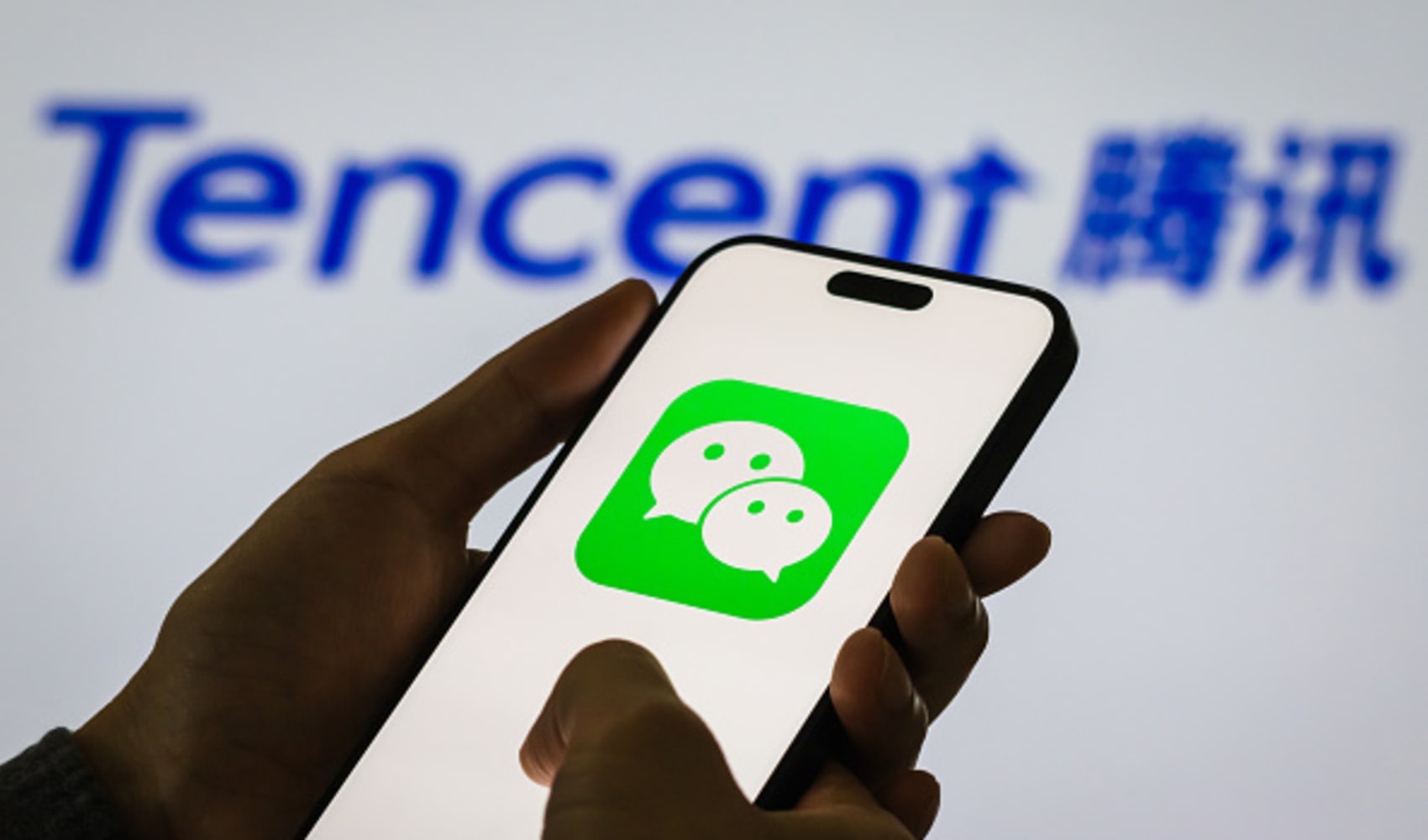Tencent's Gaming Surge: 13% Revenue Jump Explained!
Tencent's Gaming Power-Up: 13% Revenue Surge Signals Continued Dominance
Introduction: A Tech Titan's Triumphant Quarter
Tencent, the Chinese tech behemoth, just dropped a bombshell – a 13% revenue jump! In a world where economic headwinds seem to be the norm, this is no small feat. It's like watching a superhero effortlessly leap over a skyscraper. But what’s behind this surge? Well, grab your controllers, because it's primarily fueled by a resurgence in their gaming division. Let's dive into the nitty-gritty of Tencent's first-quarter performance and what it means for the future of this tech giant.
Gaming Takes Center Stage: Honor of Kings and Peacekeeper Elite Reign Supreme
Forget quiet libraries, the sound of button mashing and triumphant victory cries are echoing through Tencent's headquarters. The driving force behind this impressive growth? You guessed it – gaming! Tencent's China games revenue soared by a whopping 24% year-on-year. But which games are carrying the weight? Two titans stand out: "Honor of Kings" and "Peacekeeper Elite." These aren't just games; they're cultural phenomena in China, drawing in millions of players daily. Think of them as the digital equivalent of the Super Bowl, but played every day.
The Power of Mobile Gaming: Accessibility and Engagement
Why are these mobile games so successful? Well, consider the accessibility. Most people have a smartphone, meaning that anyone can join in the fun. Furthermore, these games are designed to be engaging, with regular updates, events, and competitive modes that keep players hooked. The constant influx of new content ensures that players remain invested and that the game continues to evolve, providing a fresh and exciting experience.
Beyond Gameplay: Community and Esports
The success of "Honor of Kings" and "Peacekeeper Elite" extends beyond the gameplay itself. Both games have cultivated vibrant communities, with players connecting through in-game chat, social media, and dedicated forums. Esports also plays a significant role, with professional players and tournaments drawing massive viewership and further boosting the games' popularity. Esports turns gaming into a spectator sport, generating hype and excitement that spills over into the games themselves.
Advertising's Ascent: Riding the Wave of WeChat Mini Programs
It's not just gaming that's shining brightly. Tencent's advertising business is also experiencing a significant upswing. According to the report, this growth is driven by "robust advertiser demand" for video, search, and Mini Program products within WeChat. Think of WeChat as China's super-app – it's not just a messaging platform; it's a gateway to countless services, from e-commerce to payment processing. And within this ecosystem, Mini Programs are proving to be a goldmine for advertisers.
WeChat Mini Programs: A Marketing Playground
WeChat Mini Programs are lightweight apps that run within WeChat itself, offering a seamless and convenient user experience. For advertisers, they represent a highly targeted and effective marketing channel. Imagine being able to reach millions of potential customers directly within the app they use every day. Mini Programs offer a unique opportunity for businesses to connect with consumers in a personalized and engaging way, leading to higher conversion rates and increased revenue.
The Video Advantage: Capturing Attention in a Visual World
Video advertising is also playing a crucial role in Tencent's advertising success. In today's visual-driven world, video ads are more likely to capture attention and generate engagement than traditional text-based ads. Tencent's video platforms, such as Tencent Video, provide advertisers with a vast audience and sophisticated targeting capabilities. By leveraging data-driven insights, advertisers can deliver highly relevant video ads to the right people at the right time, maximizing their return on investment.
Revenue Soars, but Profit Lags: A Closer Look at the Numbers
While the revenue numbers are undeniably impressive, the devil is always in the details. While Tencent beat revenue expectations, its net profit fell short. So, what gives? It's like throwing a party – everyone enjoys the festivities, but cleaning up afterward can be a drag. In business, increased spending, investments, and market fluctuations can all impact the bottom line. Understanding this nuance is crucial for a complete picture of Tencent's financial health.
Revenue Versus Profit: Understanding the Discrepancy
Revenue represents the total income generated by a company, while profit is what's left after deducting all expenses. In Tencent's case, the discrepancy between revenue and profit could be attributed to a variety of factors, such as increased marketing spend, investments in new technologies, or fluctuations in foreign exchange rates. It's important to analyze these factors to understand the underlying reasons for the profit shortfall.
The Importance of Long-Term Investments: Building a Sustainable Future
Sometimes, short-term profit dips are the result of long-term investments. Companies like Tencent are constantly investing in research and development, new technologies, and strategic acquisitions to ensure their long-term growth and competitiveness. These investments may initially impact profitability, but they are essential for building a sustainable future. Think of it as planting a tree – it takes time and effort to nurture, but eventually, it will bear fruit.
Geographic Expansion: Looking Beyond China
While China remains a core market for Tencent, the company is also actively expanding its reach into other regions. This geographic diversification is essential for mitigating risk and tapping into new growth opportunities. Just as a farmer plants crops in different fields, Tencent is spreading its business across different markets to ensure a more stable and resilient revenue stream.
Southeast Asia: A Promising Growth Market
Southeast Asia is a particularly promising market for Tencent, with its large and rapidly growing population, increasing internet penetration, and rising disposable incomes. Tencent is actively investing in Southeast Asian gaming companies and developing localized versions of its popular games to cater to the region's diverse tastes. This strategic focus on Southeast Asia is likely to contribute significantly to Tencent's future growth.
Global Partnerships: Collaborating for Success
In addition to organic growth, Tencent is also pursuing strategic partnerships with companies around the world. These partnerships allow Tencent to leverage the expertise and resources of its partners to expand its reach and enter new markets. Think of it as forming an alliance – by working together, companies can achieve more than they could on their own. These global partnerships are crucial for Tencent's long-term success in a rapidly changing global landscape.
The Future of Tencent: Innovation and Adaptation
What does the future hold for Tencent? In the fast-paced world of technology, companies must constantly innovate and adapt to stay ahead of the curve. Tencent is no exception. The company is investing heavily in emerging technologies such as artificial intelligence, cloud computing, and virtual reality, which are likely to play a significant role in its future growth.
Artificial Intelligence: Transforming the User Experience
Artificial intelligence (AI) is rapidly transforming the user experience across a wide range of industries. Tencent is leveraging AI to personalize content recommendations, improve customer service, and enhance the gaming experience. By harnessing the power of AI, Tencent can create more engaging and rewarding experiences for its users, leading to increased loyalty and higher retention rates.
Cloud Computing: Powering the Digital Economy
Cloud computing is the backbone of the digital economy, providing businesses with scalable and cost-effective computing resources. Tencent Cloud is rapidly growing, offering a comprehensive suite of cloud services to businesses of all sizes. By providing reliable and secure cloud infrastructure, Tencent is helping businesses to innovate and grow in the digital age.
Conclusion: A Force to Be Reckoned With
Tencent's 13% revenue jump, fueled by its gaming prowess and advertising ascent, underscores its continued dominance in the tech landscape. While profit margins faced some challenges, the company's strategic investments and geographic expansion hint at a promising future. From "Honor of Kings" to WeChat Mini Programs, Tencent's innovations are shaping the digital world. As they continue to adapt and innovate, expect Tencent to remain a force to be reckoned with for years to come.
Frequently Asked Questions (FAQ)
- What were the main drivers of Tencent's revenue growth in Q1 2025? The primary drivers were a 24% year-on-year increase in China games revenue, fueled by popular games like "Honor of Kings" and "Peacekeeper Elite," and robust advertiser demand for video, search, and Mini Program products within WeChat.
- Why did Tencent's net profit fall short of expectations despite strong revenue growth? The profit shortfall could be attributed to increased marketing spend, investments in new technologies, fluctuations in foreign exchange rates, or other operational expenses. It's important to consider these factors alongside revenue when assessing overall financial performance.
- How important are WeChat Mini Programs to Tencent's advertising business? WeChat Mini Programs are a highly valuable advertising channel for Tencent. They offer a direct and targeted way for businesses to reach millions of WeChat users, leading to increased engagement and conversion rates.
- What is Tencent's strategy for geographic expansion? Tencent is focusing on expanding into high-growth markets like Southeast Asia, investing in local gaming companies, and developing localized versions of its popular games. They also leverage global partnerships to enter new markets.
- What emerging technologies is Tencent investing in? Tencent is actively investing in artificial intelligence (AI), cloud computing, and virtual reality (VR). These technologies are expected to play a key role in transforming the user experience and driving future growth.

